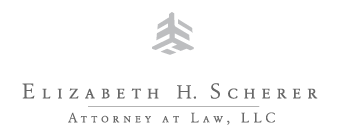Bankruptcy Exemptions
Georgia Bankruptcy Exemption Advice
One of the largest concerns in filing bankruptcy is what assets you may retain. Retaining your personal residence is often of high importance. We will advise you on what assets are exempt and may be at risk, and assist in a strategy to keep your personal residence, if possible. In both Chapter 7 and Chapter 13 bankruptcies you may be qualified to keep your home.
At Elizabeth H. Scherer Attorney At Law, LLC., we will advise you on each of the asset types that you might have protection against under bankruptcy. These include, but are not limited to, Homestead, Vehicles, Personal Property, Wages, Pensions, Public Benefits, Alimony and Child Support, Tools of Trade, and Insurance. Your personal situation and the impact a bankruptcy filing has on it, is reviewed in great detail prior to bankruptcy filing.
Navigating the Georgia Bankruptcy Exemptions is complicated. We will assist you in determining how the statues apply to your particular situation.
Why This Matters
We carefully analyze your situation, examine your assets, listen to your goals, and develop a strategy that provides for the maximum allowable exemptions of assets to retain. At the same time, we position your bankruptcy filing to provide you the maximum relief from your debt.
The Georgia bankruptcy exemptions and related statues are very complicated. You need the advice and guidance of a skilled attorney to protect the assets most important to you. One size does not fit all! Our experience and knowledge of the bankruptcy process allows us to help you, in your individual situation, to use allowable exemptions in the most effective way. Contact us (hyperlink) for an initial free consultation.
Residency Requirements and State Exemptions
Prior to the new bankruptcy law, filers used the exemptions of the state where they lived when they filed for bankruptcy. Under the new rules, however, some filers will have to use the exemptions of the state where they used to live. There is a legal test to establish which state’s exemptions you may use.
If you have not lived in Georgia for at least two years…
- Then, which state did you consider your domicile two years ago?
The following apply to everything OTHER than a home: (A longer residency requirement applies to homestead exemptions).
- If you have lived or made your residence in your current state for at least two years, you can use that state’s exemptions.
- If you have lived or made your residence in your current state for more than 91 days but less than two years, you must use the exemptions of the state where you lived for the better part of the 180-day period immediately prior to the two-year period preceding your filing.
- If you have lived or made your residence in your current state for fewer than 91 days, you’ll need to wait until you have lived there for at least 91 days before you can file (and then use whatever exemptions are available to you according to the rules set out above).
- If the state you are filing in offers a choice between the state and federal bankruptcy exemptions, you can use the federal exemption list regardless of how long you’ve been living in the state. Georgia does not permit a choice between state and federal bankruptcy exemptions.*
- If these rules deprive you of the right to use any state’s exemptions, you can use the federal exemption list. For example, some states allow their exemptions to be used only by current state residents, which might leave former residents who haven’t lived in their new home state for at least two years without any available state exemptions.
Statutes within states vary widely. Our firm will aggressively work to advise you and help you navigate through the complexities of allowable exemptions to achieve the best result for your particular situation. Contact our office for a free consultation.
